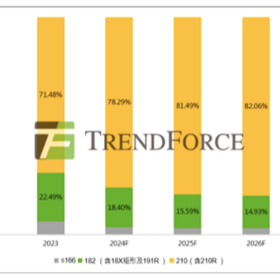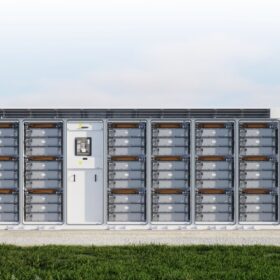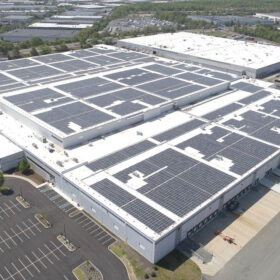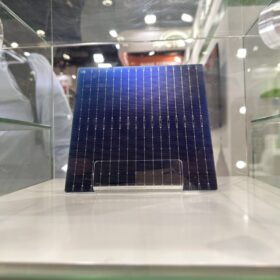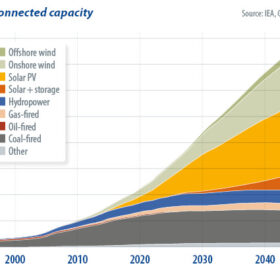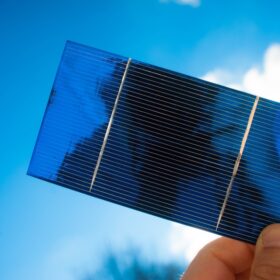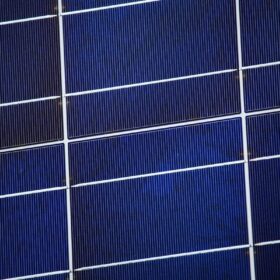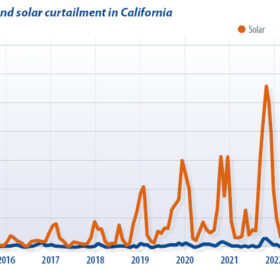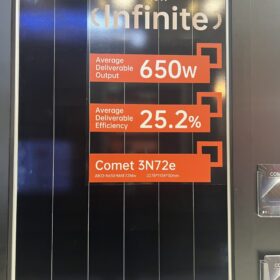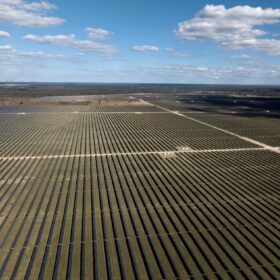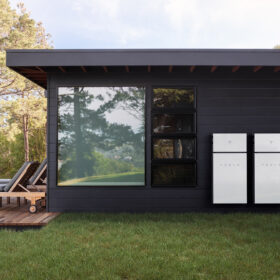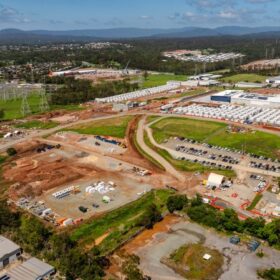TrendForce says 210 mm module shipments surpassed 260 GW in Q1
Market intelligence platform TrendForce says 210 mm n-type technology is “set to spearhead a new industrial revolution.” It expects 210mm modules to account for 78.29% of the large-format module market this year, increasing to 82.51% by 2027.
Tesla battery deployment up 157%; Megapack pricing down 44%
In its latest quarterly press release, traditionally focused on vehicle production, Tesla revealed a significant increase in energy storage deployment, officially reporting revenue for 9.4 GWh of deployed storage products.
Digital world driving growing demand for renewable generation
The world’s reliance on the internet, the shift to cloud computing, and the emergence of AI all fuel demand for more and more data centres. The International Energy Agency projects that by 2026, data centres will consume more than 800 TWh annually, more than double their consumption in 2022.
All solar cell efficiencies at a glance – updated
The research group led by University of New South Wales Scientia Professor Martin Green has published Version 64 of the solar cell efficiency tables. There are 19 new results reported in the new version.
China could lead the world to net zero
China, with an 18% share of the global population, uses 26% of the world’s primary energy and emits 33% of the world’s energy-related CO2. The energy transition unfolding in the country isn’t merely a national affair as its ramifications echo globally, explains Mahnaz Hadizadeh, a researcher for consultancy DNV.
Researchers discover method to help solar cells self heal
A global team of researchers, lead by Monash University, Melbourne, have made a game-changing breakthrough that could make perovskite solar cells more reliable and efficient.
RETC releases 2024 PV Module Index
The United States-headquartered Renewable Energy Test Center has released its annual PV Module Index, evaluating the reliability, quality, and performance of solar panels.
Weekend read: Time to talk curtailment
It’s time to assess curtailment, as rising amounts of excess generation are being wasted in several markets. This can be problematic for the solar industry but Toby Couture and David Jacobs, coordinators of think tank Global Solar PV Brain Trust, argue that curtailment is not always bad.
Aiko presents ABC solar module with world record efficiency of 25.2%
The Chinese back-contact module maker said its new products rely on the company’s all-back-contact cell technology and feature a temperature coefficient of -0.26% per C.
New $100 million challenge targets 50 GW per year
The Australian Renewable Energy Agency has dangled a $100 million carrot in front of the world’s best and brightest solar industry proponents to help lower solar and electricity costs to scale up annual installation in Australia from 5 GW per year to 50 GW.
